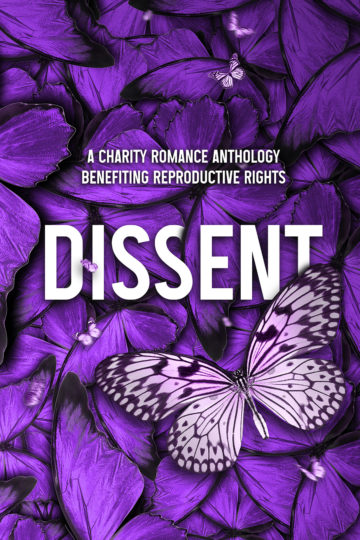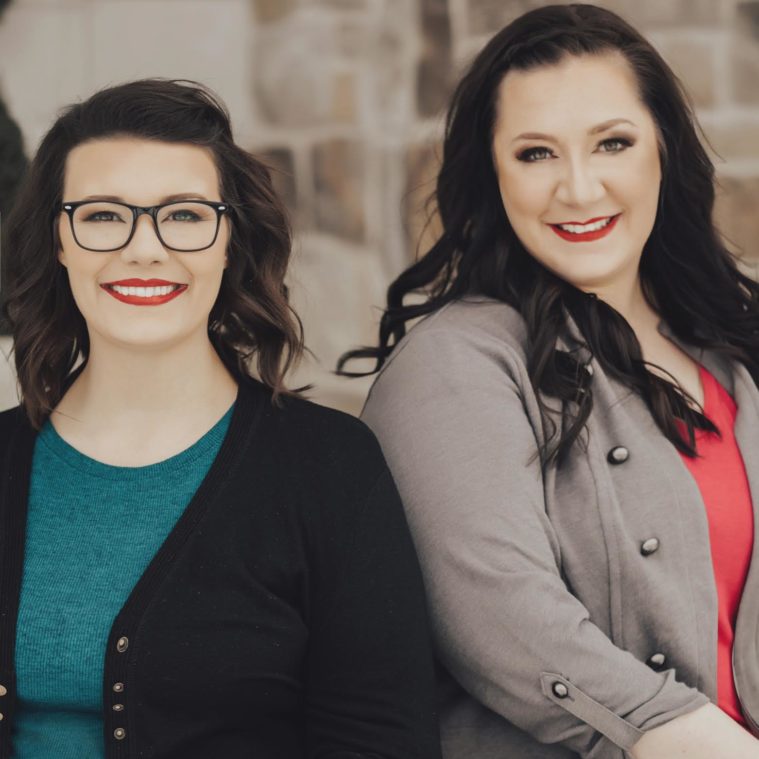Romance novelists are a charitable group: Authors often band together and publish short story anthologies to benefit various causes. So when the Supreme Court reversed Roe v. Wade in June and ended decades of the constitutional right to abortion, romance writers immediately rallied in online communities.

A few organizers—including Nicole French and Texas-based Lyra Parish—threw together a sign-up sheet to solicit volunteers to write an anthology for reproductive rights. They received more than 200 responses within 24 hours, French said. And, within months, the Dissent Anthology of 150 new stories was published. The collection is available as an e-book or a three-volume paperback set for a limited time, to encourage readers to donate sooner rather than later. All proceeds benefit Planned Parenthood, the National Latina Institute for Reproductive Justice, and the Center for Reproductive Rights.
The structures of many romance stories are designed to give agency to women, said French, a Seattle-based writer. In her view, romances generally offer characters a set of choices: “The choice to find your partner, to choose who they are, to have a happy ending, and to do with your body what you want.” For these authors, it’s only logical to want the same choices in real life.
Dissent contains a huge range of themes and writing styles. Readers who aren’t sure what to expect should be warned: Many stories contain sex scenes that veer into NC-17 territory. Most authors don’t write directly about abortion rights, though some address reproductive issues. One story set in Austin—“The First Date,” by Janet Berry—includes a character who works as a lawyer at the Center for Reproductive Rights. (The lawyer’s line: “A woman’s right to choose is fundamental,” is rewarded by his date responding, “That is so sexy.”)
Several Texas authors contributed, including Parish, who publishes with writing partner Brooke Cumberland under the pseudonym Kennedy Fox. Joining the effort was a no-brainer for the duo.
“The romance genre is typically women-centric, so as women, it was in our best interest and [that] of our readers to do this,” Parish said.
Romances generally offer characters a set of choices: “The choice to find your partner, to choose who they are, to have a happy ending, and to do with your body what you want.”
Their story, “Smut and Murder,” features a young married couple who live and work on a family ranch in Eldorado—a real town three hours west of Austin. In a twist on the theme of reproductive choice, the couple is actively trying for a baby.
The short story gets straight to (sexy) business. It’s a fast read, composed in uncomplicated and accessible language, and the plot moves as quickly as the writing. The central romance is embellished with a side of murder mystery, although the crime is easily resolved and doesn’t overcomplicate what is essentially a feel-good, escapist fantasy. The story is part of an ongoing family saga. The characters come from a series of Kennedy Fox books set on the same ranch, and are inspired by Parish’s own life in Texas, as she explained via email.
“We try to make our characters, settings, and dialect as authentic as possible,” she said. “I grew up horseback riding; my dad was a bronco champ, so writing about the Texas experience comes naturally.”
Readers looking for other Texas stories can turn to “Gavin’s Obsession,” by Shaw Hart, in which a military veteran from Houston finds love with his childhood friend-turned-roommate. In “Whiskey Chaser,” by Tricia Lynne, an overworked engineer takes her partner to a sex club after attending a march for reproductive rights in Dallas. And in “Saddle Up Cowboy,” by Sade Rena, a country boy leaves Texas for the first time, Stetson on his head, to surprise his romance author partner at her book signing.

Of course, under the fun, happy-ending nature of these stories is the deadly serious anxiety of what will become of Americans in states with abortion bans. For Parish, growing up in Texas influenced her thinking on sex and reproductive rights. Unbiased education about these topics has never been a priority here, she said, and neither is quality, accessible healthcare—resulting in a dire situation for people who need abortions, especially in medically precarious situations.
The new felony charge for performing an abortion in Texas is extreme and a violation of fundamental human rights, said Parish. She and her fellow organizers hope this anthology will not only raise money, but also raise awareness of abortion and reproductive rights as a political issue. “Reproductive rights shouldn’t be political, but nothing will change as long as Ted Cruz, John Cornyn, and Greg Abbott represent us,” Parish said, adding that state leaders should not be legislating morality or governing based on their religion. “I hope this energizes people to register to vote and participate in the midterm elections. This has already mobilized many on both sides of the aisle.”
The Dissent Anthology organizers haven’t received payouts from their vendors yet, so they can’t tell exactly how much money has been raised so far for the three reproductive rights organizations. But they sold 11,000 copies of the anthology in its first week—enough to land on the USA Today bestseller list. A publication-related auction raised $25,000.
“I don’t think it’s a coincidence that the person who was able to flip Georgia was a former romance writer.”
Romance readers and writers have potential to be a political force of their own, said co-organizer French.
“I don’t think it’s a coincidence that the person who was able to flip Georgia was a former romance writer—Stacey Abrams,” she said, referring to Abrams’ organizing work on behalf of the Democratic party after her run for governor, which paved the way for Raphael Warnock and Jon Ossoff to win Senate elections in 2020.
Many romance readers are the same white women whom Democrats hope to win from the Republican side. Although there’s fevered debate over whether that’s possible, French has hope.
“We’re speaking directly to people who are the swing vote,” she said. “We want others to notice: this is an important issue for this population.”







